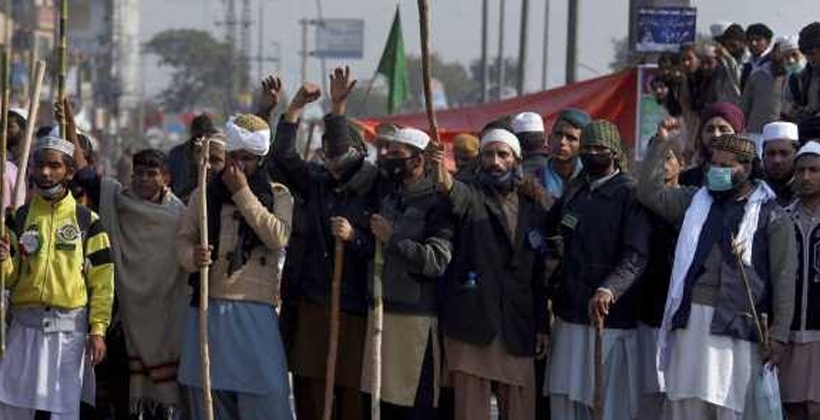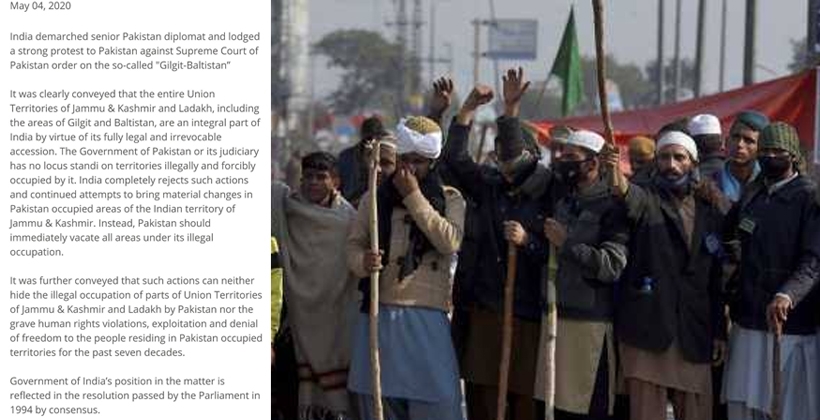Gilgit-Baltistan issue heats-up as India strongly rejects Pakistan's plans to hold elections in the region
| 05-Jul-2020 |

After India openly rejected Pakistan’s decision to hold elections in Gilgit-Baltistan next month, Pakistan notwithstanding India’s objection has said that New Delhi has apparently no locus standi to comment on the matter. Now, the war of words between both countries over Gilgit Baltistan has heated up amid calls in New Delhi to move beyond mere statements. Previously, India seriously viewing the impending elections had even called in a Pakistani diplomat to protest against the Pakistan Supreme Court’s order in Gilgit-Baltistan.
Pakistan is planning to hold elections in Gilgit-Baltistan on August 18 which India has strongly opposed saying that the entire union territories of Jammu and Kashmir and Ladakh, including the areas of Gilgit and Baltistan, are an integral part of the country and that Pakistan must vacate all Indian territories that are under their illegal occupation.
On Thursday, the Ministry of External Affairs slamming Pakistan over its plans to hold general elections in Gilgit-Baltistan said that such cosmetic exercises are intended to camouflage Islamabad's illegal occupation of Indian territories. And India rejects such attempts by Pakistan to bring material changes to the Indian territories of Jammu and Kashmir and Ladakh, said MEA spokesperson.

Pakistan's Foreign Office reacting to India's strong remarks has said that New Delhi has no locus standi to comment on elections in Gilgit-Baltistan. Pakistan also alleged that India remained in illegal occupation of parts of Jammu and Kashmir. It also said that baseless Indian contentions about elections in Gilgit-Baltistan cannot cover up the violations of human rights in Jammu and Kashmir.
National Security Advisory Board member Tilak Devasher has urged New Delhi to move beyond the cosmetic exercise of including Gilgit Baltistan in its weather bulletin.
Gilgit-Baltistan is also an issue of dispute with China which has built the Karakoram Highway that allows Pakistan to easily access military supplies via land. The highway and Pakistani occupation of Gilgit-Baltistan also denies India land access to Afghanistan and Central Asia.
The raising of diplomatic tensions on Gilgit-Baltistan closely follows expulsions of High Commission staffers from both countries and halving of mission strength from 110 to 55 staffers each. Both High Commissions are already serving without their top envoys. Government of India’s position in the matter is reflected in the resolution passed by Parliament in 1994 by consensus. Security analysts apprehend that one of the reasons for China’s aggressive moves in eastern Ladakh is to strengthen its hold on the region in order to make more secure land connections to Pakistan and between Tibet and Xinjiang.